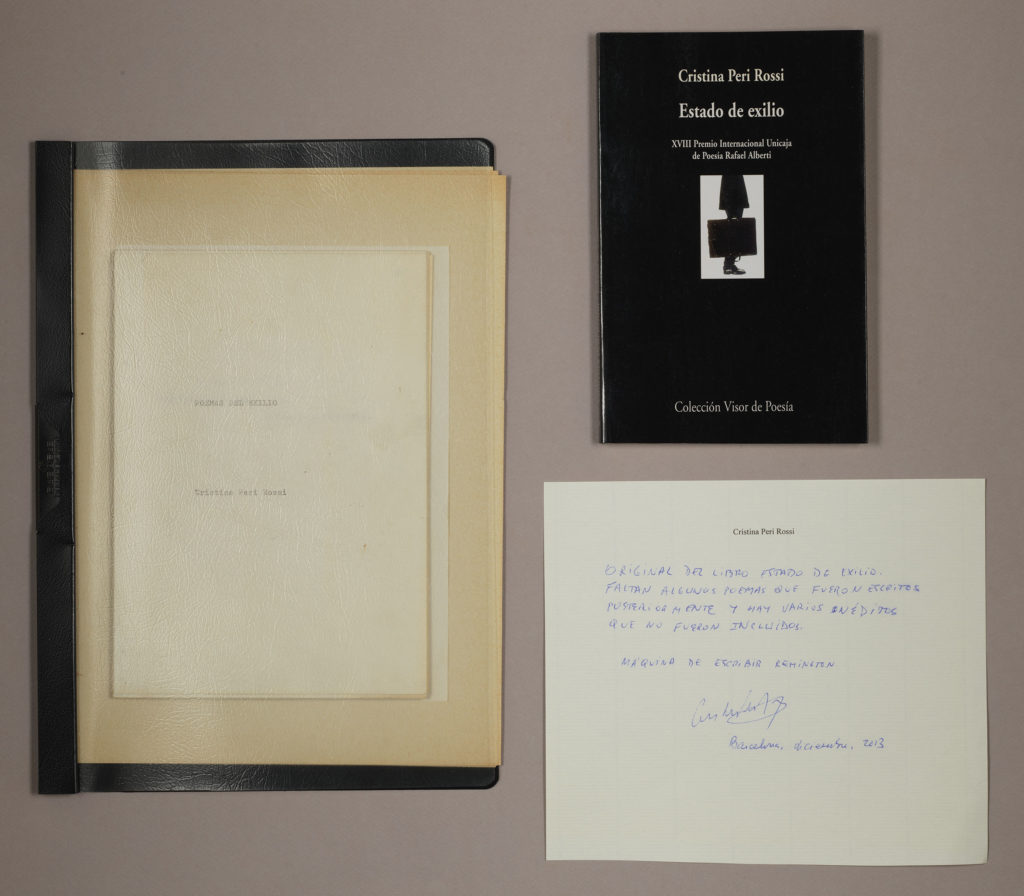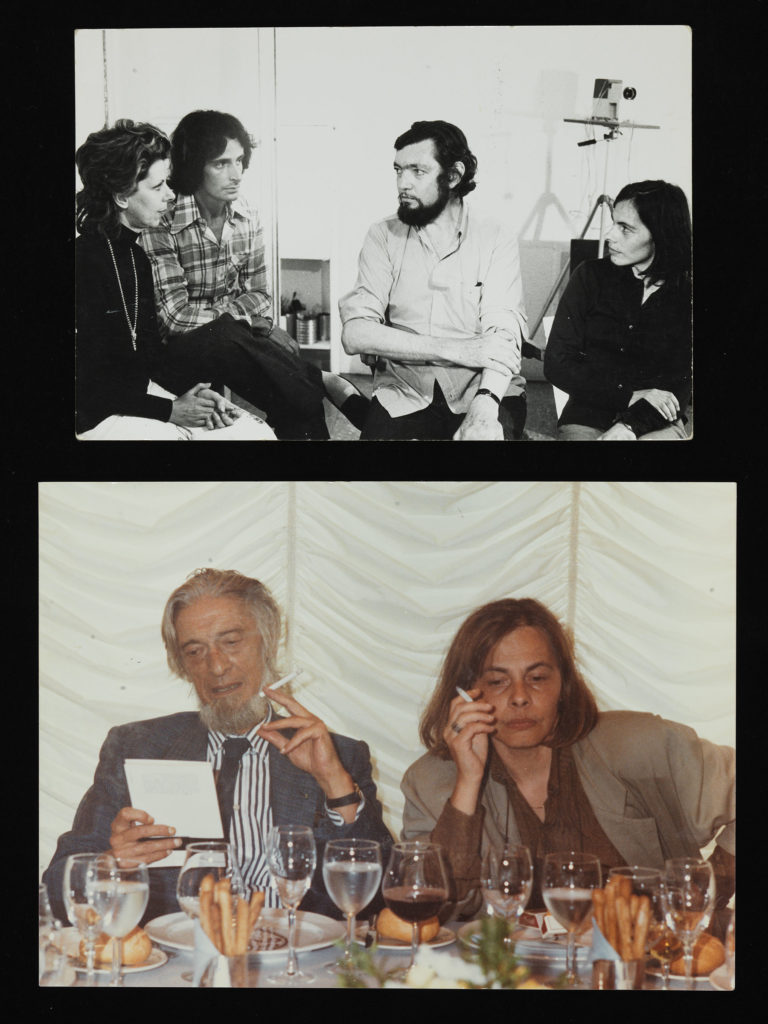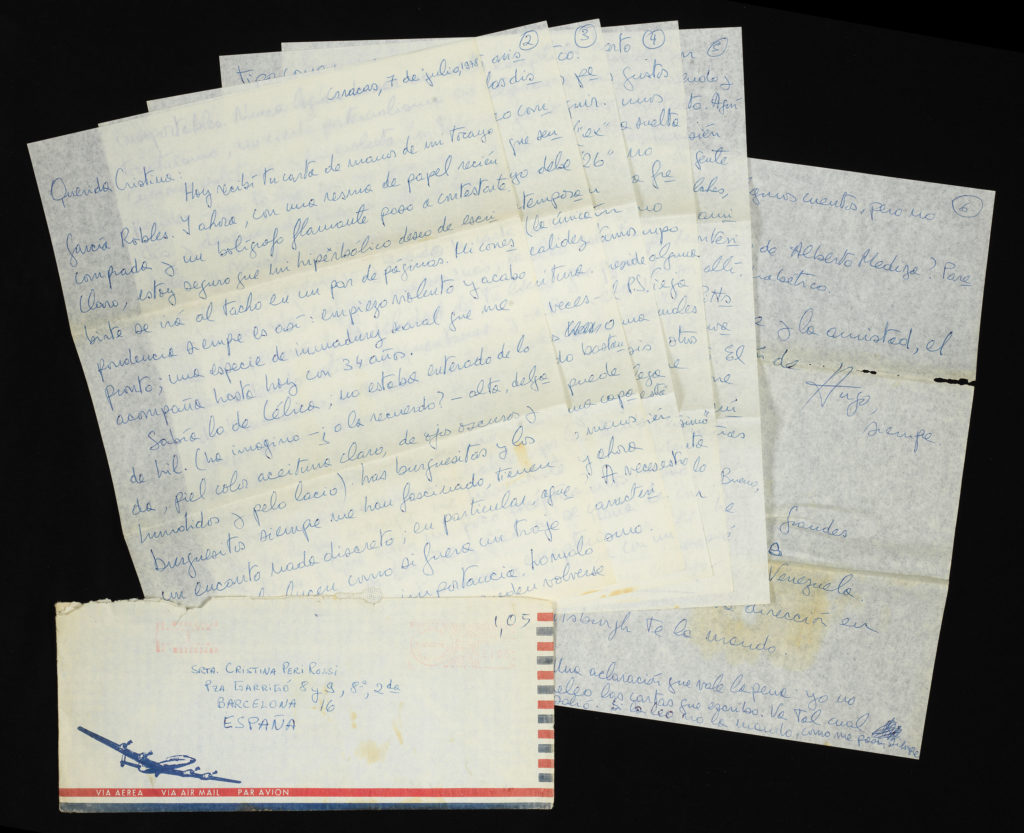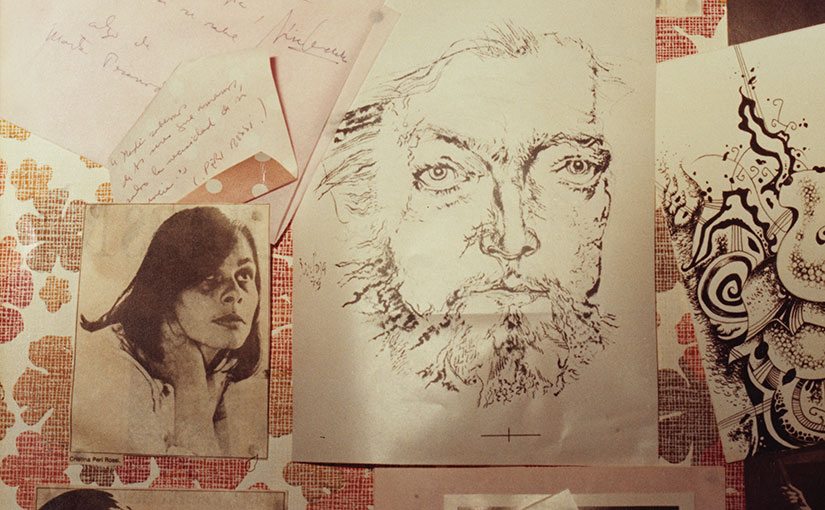
by David Dressing, Latin American and Iberian Studies Librarian, and Erika Hosselkus, Curator, Latin American Collections
Since the late 1960s, Uruguayan writer Cristina Peri Rossi has written 5 novels, 10 collections of short stories, 18 books of poetry, 4 books of essays, and innumerable cultural articles published in major European newspapers. Her works have garnered critical praise and won her many international awards over the years.
In the early 1970s, Peri Rossi was exiled from Uruguay to Spain as the country came under control of a military regime. The political violence endemic in Uruguay and the broader Southern Cone during the 1970s and 1980s is allegorized in many of her works. This violence and censorship affected an entire generation of authors and intellectuals from Uruguay, Argentina, and Chile and influenced their work. In recent critical studies, these authors have been recognized as the “Generation of ’72,” with Peri Rossi often being identified as the leading voice of this group.
The Cristina Peri Rossi Papers at Notre Dame include manuscript drafts of her published novels as well as unpublished poems and short stories, handwritten diaries, photographs, recorded interviews, and correspondence with family, friends, and other major Latin American and Spanish authors and intellectuals.


Bottom photo: Peri Rossi with publisher and poet, Carlos Barral, Barcelona, 1989.

 This work is licensed under a Creative Commons Attribution 4.0 International License.
This work is licensed under a Creative Commons Attribution 4.0 International License.
